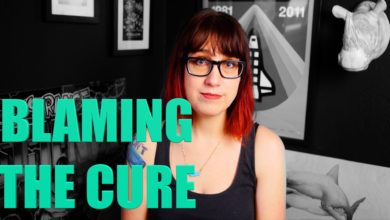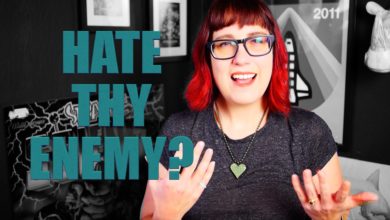How Facebook Helps Dictators Around the World
This post contains a video, which you can also view here. To support more videos like this, head to patreon.com/rebecca!
Transcript:
What I have to say today isn’t news. I’ve talked about Facebook and the danger of misinformation spreading on social media so much that it’s probably my go-to subject if I ever have to give an extemporaneous one-hour long speech. But let’s talk about the latest Facebook whistle-blower.
Sophie Zhang was a data analyst for Facebook’s Site Integrity fake engagement team, meaning that it was her job to identify accounts run by bots or humans making accounts for nefarious purposes. She was recently fired, and Facebook offered her $64,000 to sign a nondisparagement clause on her way out. Considering what she knew, they might have double-checked their max budget on that because she refused, instead choosing to pen a 6,600-word essay that she posted to Facebook’s internal employee forums. Someone there promptly grabbed it and leaked it to Buzzfeed, who published the gory details for all to enjoy, minus some personal details about Zhang. Which I should mention, Zhang said she didn’t actually want this to blow up for her own safety, but knew it was a possibility. I feel bad contributing to that, but…the story is maybe more important than the individual.
Because the story is damning. Like, I really went into this thinking “what could she possibly say that I hadn’t assumed already about Facebook?” For instance, I knew that Facebook was responsible for ignoring governments and other groups using nefarious tactics to spread misinformation about political opponents and causes in order to sway public opinion in dangerous ways. I knew they profit off Donald Trump’s administration pushing a false narrative. I knew they profit off fringe extremists finding and radicalizing others, including MRAs and QAnon proponents.
But what I didn’t realize, because I am an American and this is our classic trait, that the negative effects extended far beyond the issues and the countries that I implicitly deem as more important and worthy of my attention. Facebook’s help in electing Trump president has been disastrous — literally 200,000 Americans are dead because of his inaction just on COVID-19 — but I previously gave no thought to the idea that bad actors also used Facebook to terrorize people in Honduras. Zhang was only on the job for six months before she learned that the administration of President Juan Orlando Hernández was running thousands of fake accounts to seed disinformation on Facebook.
In case you don’t know (I only vaguely knew and had to look this up), Juan Orlando Hernández (or JOH) just barely won his very likely fraudulent election in 2017. He is probably a drug trafficker and money launderer, so it’s not shocking that he might engage in less-than-ethical tactics to secure his second term (previously disallowed by the Honduras Supreme Court). The election completely destabilized the country, with mass protests and a military response that resulted in the deaths of several protesters.
Zhang caught the operation on Facebook but said it took her a full year to stamp them out, despite the fact that JOH’s own personal Facebook page administrator was “happily running hundreds of these fake assets without any obfuscation whatsoever in a show of extreme chutzpah.” His marketing team was bragging about how they were gaming Facebook, but it was still an incredibly hard thing for Zhang to stop thanks to Facebook leadership insisting that their employees’ time was better spent on other things. Two weeks after Zhang wiped out the network, they were back at it again, and were still there on her last day at the company.
And then there’s Bolivia. In 2019 Zhang noticed an influx of bots supporting the opposition to then-President Evo Morales, but she decided it wasn’t worth spending time on. She had so much on her plate that she was forced to prioritize other things. Soon after, the country fell into turmoil. Morales resigned and dozens of people died in the resulting protests.
And that encapsulates my two main takeaways from Zhang’s essay: first of all, she wasn’t able to get anywhere fighting anything that didn’t have media attention behind it. If Facebook got a whiff that something was going to be politically difficult for the company, they would direct resources to it. Otherwise, they’d put it on the back burner.
That’s one reason why I try to find and share stories that you might not already know about through other channels, and why I hope that you do as well. While there is a fallacy involving the assumption that you can’t care about two things at once (eg how dare you go for a manicure when transgender people are being murdered at rates never before seen), our personal reserves of energy aren’t limitless. We really can only truly passionately care about so many things at a time. And what we care about is, by and large, dictated by the media we consume and what our friends and family are talking about. It’s hard for the average person to know what’s happening in Ecuador, and Azerbaijan, and Bolivia, and their backyards, to care about all of that, and to do anything about it.
And that brings me to my second takeaway: no one person can do all that, but Zhang was. Facebook, a corporation with a net worth of $527 billion, refuses to hire enough people to make sure entire coups aren’t being orchestrated on their platform. Their employees have to prioritize WHICH coup to worry about. And how must that feel to go home after work and your spouse says “what did you do today” and on the one hand you can say “I (took) down a politically-sophisticated network of more than a thousand actors working to influence the (Indian) election,” as Zhang did, but on the other hand say “and dozens of people died in Bolivia because I didn’t have the time to help them, too.
Imagine every “dark” superhero movie of the past few decades and this is a common theme: you have SO MUCH POWER but at the end of the day you’re only one person fighting great systemic abuses. You can’t save everyone. And how do you move on without thinking about the people you could have saved, but didn’t? Zhang lived out the trolley problem. She saved some people at the expense of others. No human should have that much responsibility on their shoulders. And no human has to. One out of ten Americans is unemployed. We have the workforce for it. But Facebook knows that if no one is paying attention to what their actions (or inaction) cause in Bolivia, they will save the money by not hiring people to make the site safe. So they do. Because capitalism. The finances trump all, and there is no monetary punishment to letting a few dictators use algorithms to secure power in a country that most Americans can’t pick out on a map.
And I’m not saying I’m “not like other Americans” here, I can’t pick out any place on a map unless I’ve been there. My freshman year of high school we had to take geography and the main thing I remember is that we had to use crayons to color in world maps and we were docked points if we colored any land masses blue, because blue was for water. I’M NOT JOKING THAT’S HOW BAD PUBLIC SCHOOLS IN AMERICA ARE. I’M PRETTY SURE MY GEOGRAPHY TEACHER USED COLORING TIME TO GO HAVE A SMOKE.
Look all I’m saying is stop using Facebook so much. I understand, you don’t want to delete it because how else will you know that the boy you had a crush on in 8th grade is now a MAGA loser shilling some pyramid scheme called Beach Body. I found a good explainer on how to reduce your support of Facebook even if you can’t bring yourself to delete it, but I’m pretty sure all these assholes are in it together because when I google now I can’t find it. Basically, use ad blockers, don’t put it on your phone, don’t use Messenger, and give them as little data as possible. And support government inquiries into why, exactly, they are prioritizing money over stopping blatant fake accounts from installing dictators in other countries.




